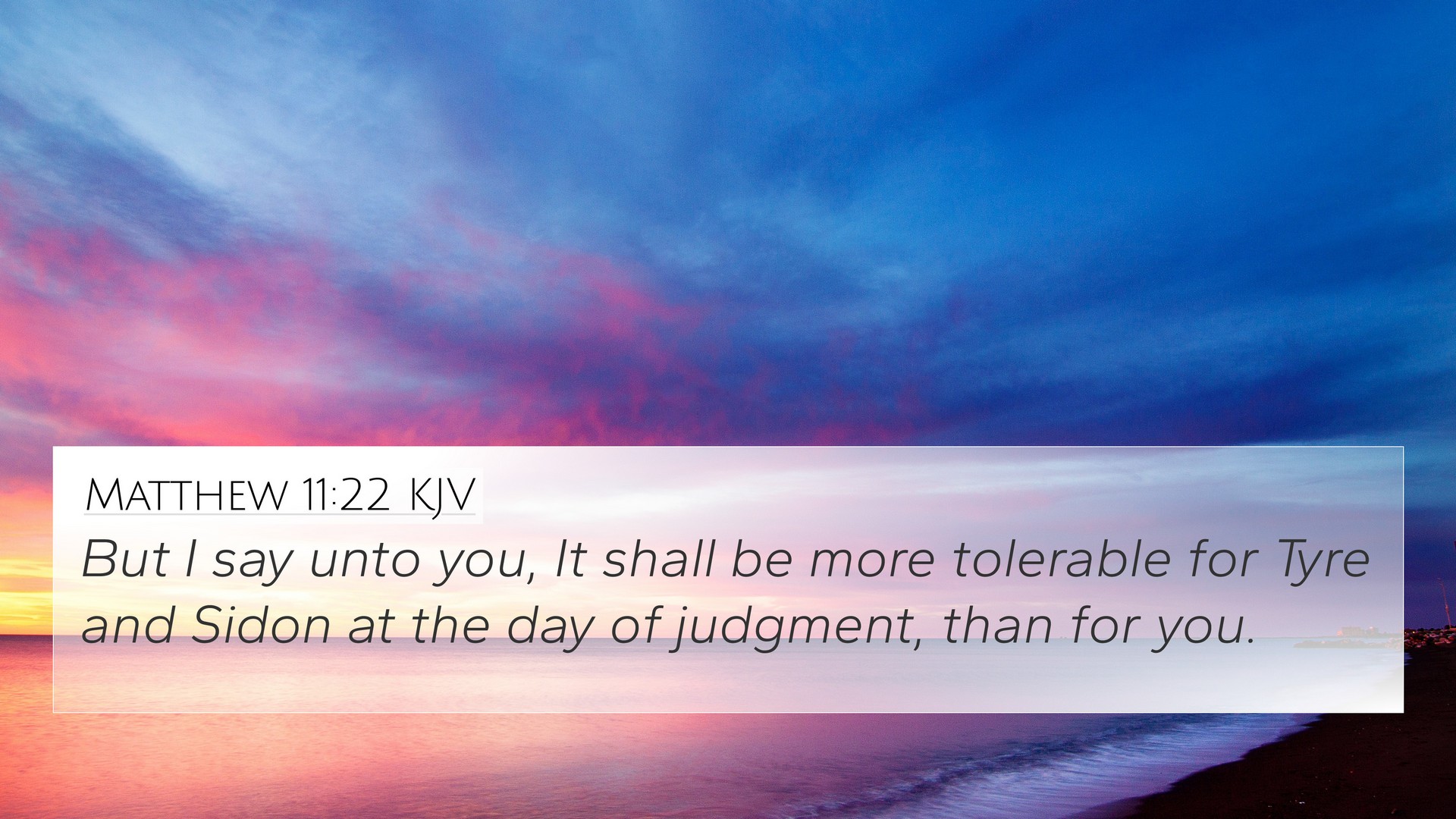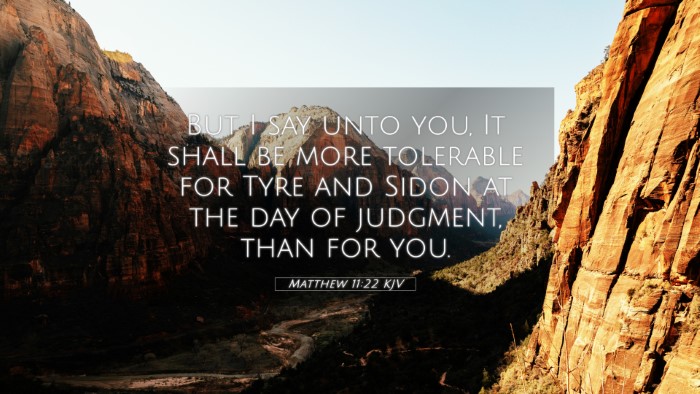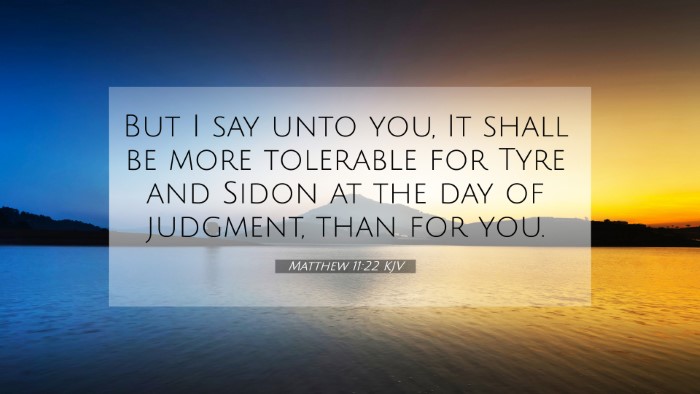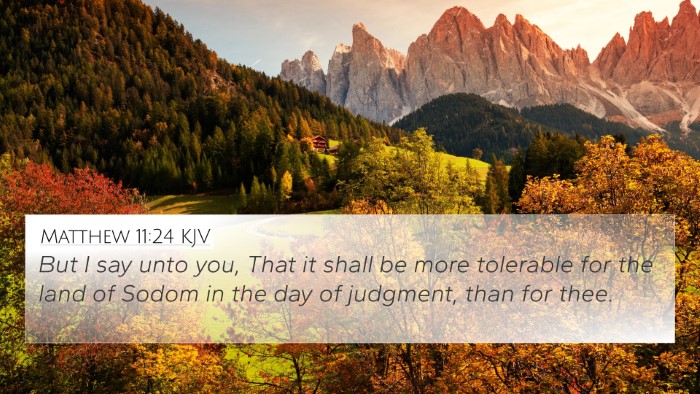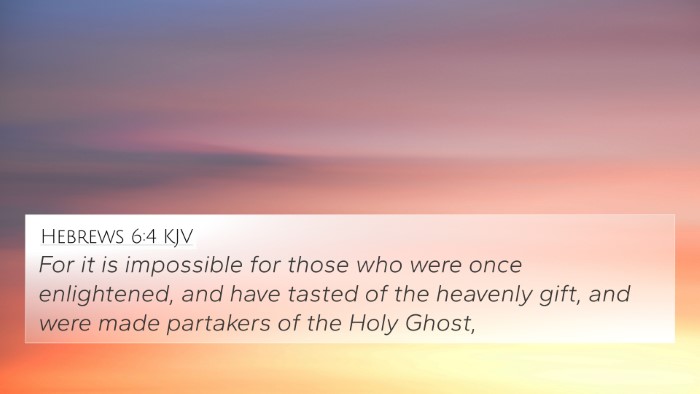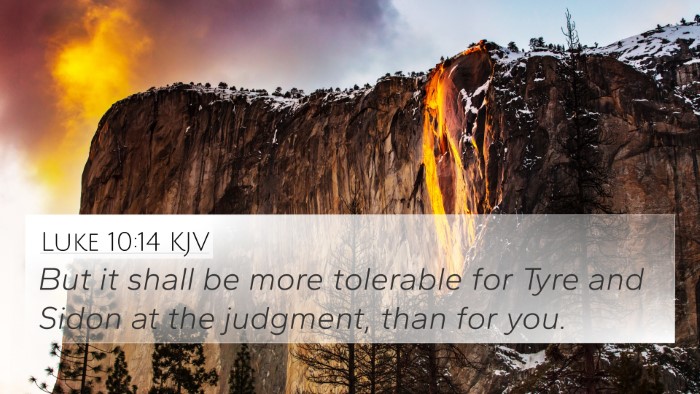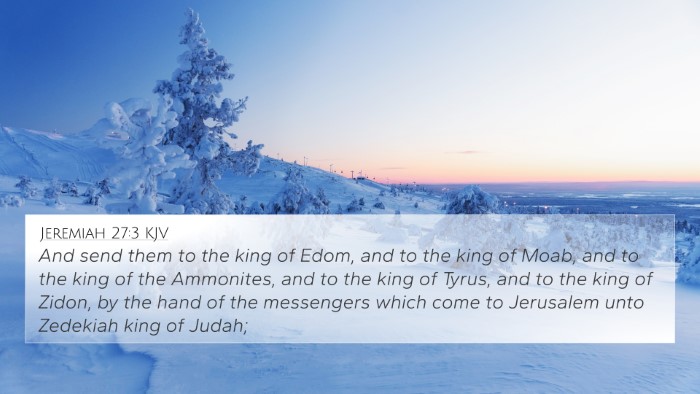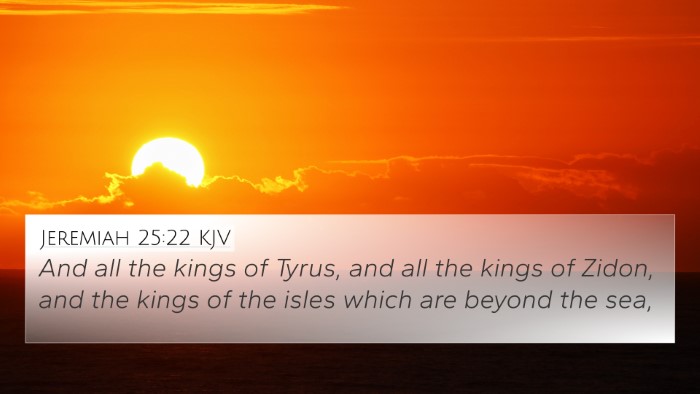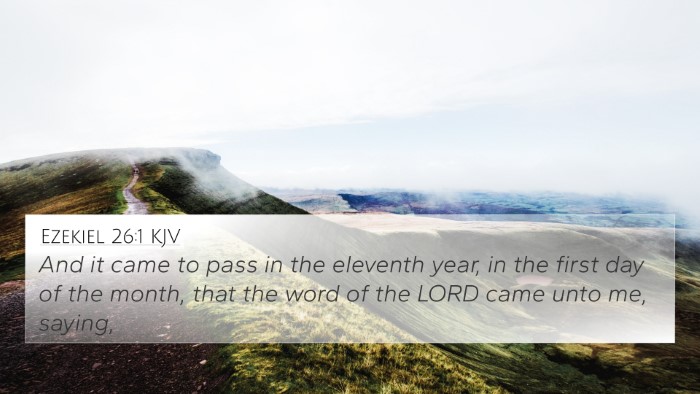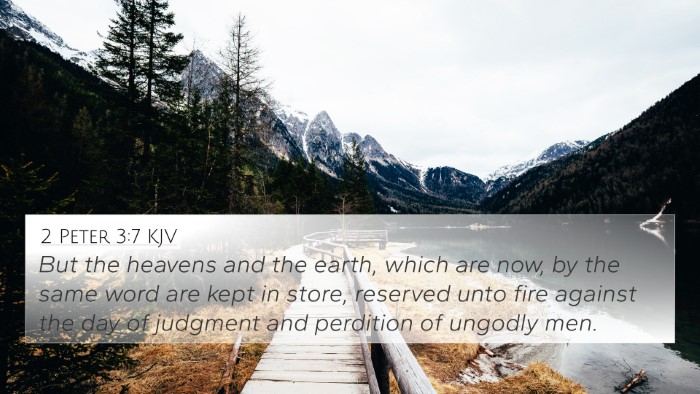Understanding Matthew 11:22
Matthew 11:22 states: "But I say to you, it will be more tolerable for Tyre and Sidon on the day of judgment than for you." This verse captures a crucial moment where Jesus addresses the unrepentant cities of Chorazin and Bethsaida, emphasizing the severity of their rejection of His teachings. To grasp the depth of this passage, it is beneficial to explore various commentaries and perform a comparative analysis with other related Bible verses.
Contextual Analysis
In this passage, Jesus rebukes these cities for their disbelief despite the miracles performed there. Tyre and Sidon, known for their wickedness and historical iniquity, represent those who had not witnessed the same level of divine revelation. Jesus indicates that their condemnation will be less severe than that of the cities that directly rejected Him.
Commentary Insights
Matthew Henry's Commentary
Matthew Henry notes that Jesus uses Tyre and Sidon as examples to highlight the grave error of Chorazin and Bethsaida. He emphasizes that the cities of Israel had the benefit of Christ's miracles and teachings, making their culpability far greater. Henry asserts that the judgment will reflect one's opportunities and the response to them.
Albert Barnes' Notes
Albert Barnes indicates that the verse serves as a warning to all who hear the gospel yet resist its call. He explains that Tyre and Sidon, though historically sinful, did not have the chance to witness Jesus' ministry, which leads to the inference that the greater the revelation, the greater the accountability.
Adam Clarke's Commentary
Adam Clarke elaborates on the concept of "tolerable" judgment, suggesting that it alludes to a mitigated responsibility in the face of lesser awareness. Clarke emphasizes the importance of understanding the mercy of God, indicating that He judges not solely on actions but also on the knowledge and light one possesses.
Key Themes and Connections
This verse emphasizes the themes of accountability, judgment, and mercy. The message indicates that those who reject revealed truth face grave consequences. As we analyze connections between scripture, it proves beneficial to look at various cross-references that reinforce these themes:
- Luke 10:13-14: Similar rebuke of cities that rejected Jesus' message.
- John 9:41: Reference to judgment based on awareness and acceptance of truth.
- Matthew 12:41-42: The judgment of Nineveh compared to that of those who reject Jesus.
- Romans 1:20: The basis for judgment as rooted in humanity's knowledge of God.
- 2 Peter 2:21: Highlights the gravity of turning away after receiving the truth.
- Hebrews 10:29: A warning concerning the consequences of despising the Spirit of grace.
- Revelation 20:12: The concept of a judgment according to one's works and response to revelation.
Connecting Themes through Cross-References
Exploring connections between Bible verses can illuminate deeper meanings. The act of cross-referencing biblical texts can reveal thematic links, such as the correlation between accountability in light of privilege, as illustrated in Matthew 11:22. This exercise encourages a broader understanding of scripture.
Using Tools for Bible Cross-Referencing
Several resources can assist in studying Bible cross-references, enabling a more thorough understanding of verses like Matthew 11:22:
- Bible Concordance: A comprehensive index of scripture for finding cross-references.
- Bible Cross-Reference Guide: Simplifies the identification of verses that relate to a specific passage.
- Cross-reference Bible Study Methods: Techniques to explore connections and themes across texts.
Conclusion
Matthew 11:22 serves as a stark reminder of the consequences of rejecting God's truth. The insights from public domain commentaries enrich our understanding of this verse, while connections to other scriptures build a framework for interpreting biblical messages. By engaging in cross-referencing and thematic studies, we deepen our comprehension of the narratives woven throughout the scripture, enriching our spiritual journey.
In summary, this verse holds profound implications for how we view accountability in Christian faith and the weight of revelation. Engaging with related verses and utilizing tools for cross-referencing can enhance our grasp of biblical themes and their applications in our lives.
